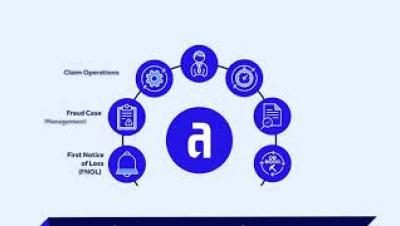Systems | Development | Analytics | API | Testing
Insurance
Optimize These 5 Functions to Deliver a Connected Insurance Experience
Consumer demand for a digital, connected insurance experience is on the rise. But with disparate legacy systems in place that make it difficult to share data and make informed, real-time decisions, insurance companies are finding themselves in need of new technology to streamline their customer journey.
Appian - Connected Claims
Insurers - Be Aware of the Hidden Exposures in assessing the economic impact of Climate Risk
Climate change is a challenge for insurers in some obvious ways, such as stronger and more frequent natural disasters. Yet there are also more subtle risks to monitor, including changes to insured assets, risks, and exposures. Climate impacts the production quality and quantity of insured consumable goods, their location, and their supply chains.
Rob Galbraith: The 7 Fatal Flaws of Insurance, Part 2
Last week, insurance industry expert Rob Galbraith introduced us to “The 7 Fatal Flaws of Insurance." This week, Galbraith weighs in on low-code automation as a competitive advantage in the $5 trillion insurance industry. “For a $5 trillion industry as mature as insurance," says Galbraith, “technology that can help solve any one of the seven fatal flaws would make a pretty good business. There's a lot of room for improvement.”
The Journey to Understanding your Insurance Customers
Insurance carriers have a unique opportunity: They have access to powerful technologies and a wealth of information that can help them to better understand their customers and provide an enhanced customer experience.
Rob Galbraith: The 7 Fatal Flaws of Insurance, Part 1
With the onslaught of hyperautomation, it’s easy to assume insurance is stodgy and boring. But don’t be fooled. Yes, the industry has its flaws—some of them fatal. But over the next decade, technology will revolutionize insurance more than it has in the past three decades combined.
What the Months Ahead Look Like for Insurance
Insurers, reinsurers and intermediaries are under pressure to adapt to new customer expectations. Insurtechs have made omnichannel digital experiences the norm. And COVID-19 has forced the issue further, on top of necessary operational and claims process changes. Digital transformation is no longer a buzzword or something that can fix just one area of an insurance organization.
Combating Fraud in Insurance with Data
Well, it is International Fraud Awareness Week, focused on promoting fraud prevention and education. A fantastic initiative! Maybe I am naïve but I feel a bit sad that there is a need for “fraud week”. The insurance industry has a long and intimate relationship with fraud in many different ways. Insurance fraud can take place at a process or business function level, most notably in claims or underwriting.
Re-thinking The Insurance Industry In Real-Time To Cope With Pandemic-scale Disruption
The Insurance industry is in uncharted waters and COVID-19 has taken us where no algorithm has gone before. Today’s models, norms, and averages are being re-written on the fly, with insurers forced to cope with the inevitable conflict between old standards and the new normal.





